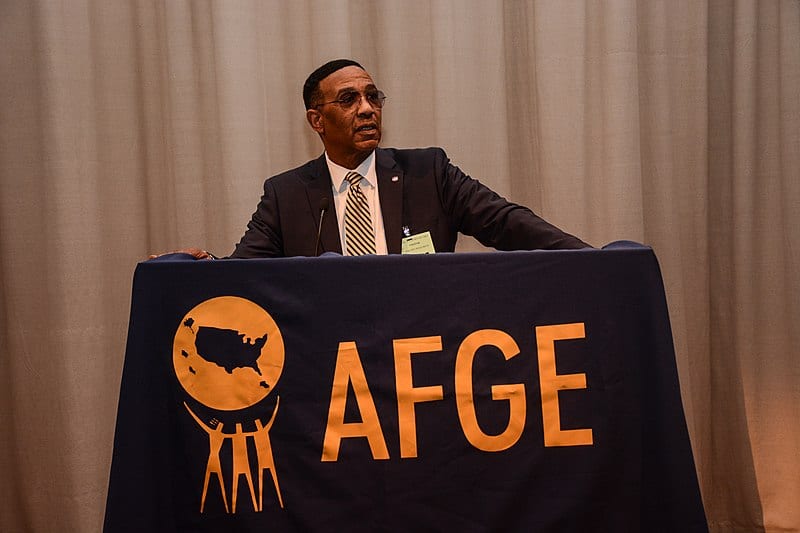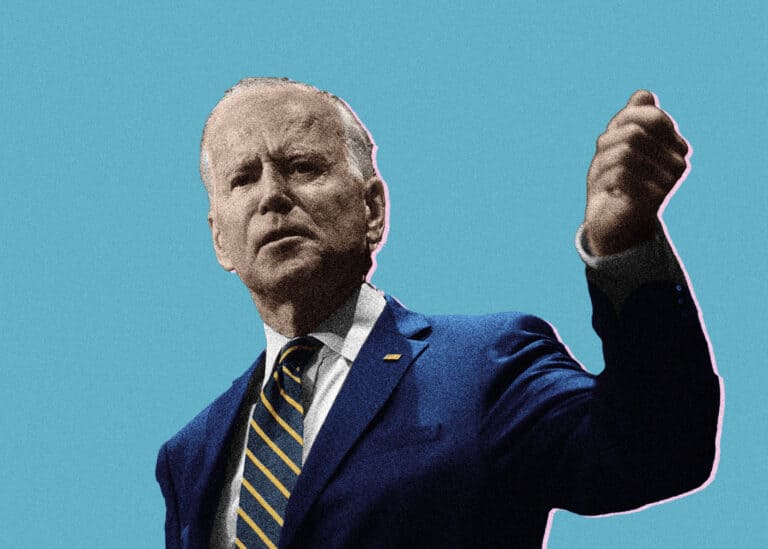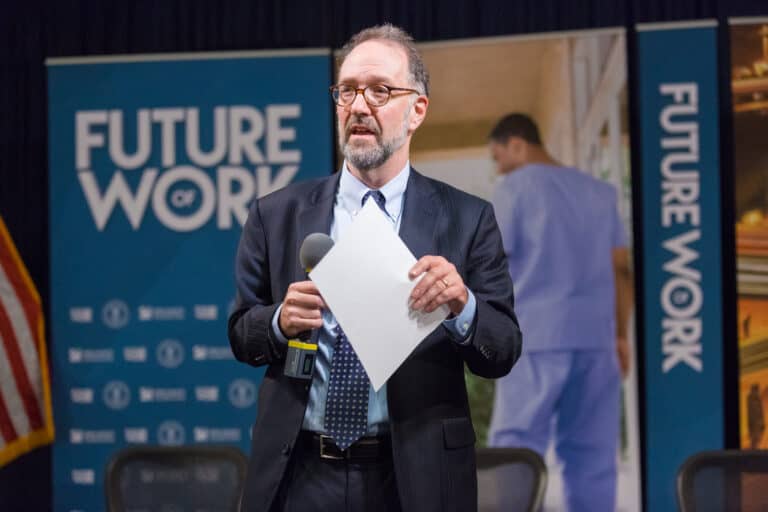On the eve of the 2020 presidential election, Joe Biden promised that he would be “the most pro-union president you’ve ever seen.” Three months into his administration, President Biden was talking like it—at least according to a Washington Post analysis of his statements, remarks, and proposals. Eight months in, some labor law experts noted that he was also acting like it.
One major—and notably unsung—pro-union action of Biden’s lay in his labor-friendly appointments to the Federal Service Impasses Panel (the “FSIP”), a ten-member body within the Federal Labor Relations Authority.
The FSIP—often described as “influential, but little-known,” “low-profile but powerful”—is a presidentially-appointed panel tasked with resolving impasses in bargaining disputes between federal agencies and their unionized employees. Though less well-known than an entity like the National Labor Relations Board, the FSIP makes decisions that have major implications for the employment terms and working conditions of more than one million federal employees.
Now that the Biden-appointed FSIP has been sworn-in and is poised to cut into a ten-month backlog of agency-union disputes, it is worth considering the underappreciated importance of the panel’s work and why a pro-union FSIP promises to be a big deal.
The FSIP is important, first and foremost, for its potential to serve as a union-friendly backstop for federal employees, a group rendered uniquely vulnerable in employment disputes.
The most significant vulnerability? The federal workforce—two million civil servants strong—cannot go on strike. Due to this legally-sanctioned and categorical denial of the right to strike, federal employees cannot exercise perhaps the most powerful bargaining tactic in negotiations with employers. The strike prohibition affords federal employers, unworried by a strike threat, strong leverage in negotiating employment terms.
And how those terms are set—how federal employees are paid, what benefits they are entitled to, what conditions they must work under—influences who takes and keeps federal jobs. The altered composition, incentives, and circumstances of federal employment also affect the delivery of services from such vital agencies as the Social Security Administration and FDA.
Yet negotiations over federal employment terms may stall even in this employer-friendly setting. And when bargaining deadlocks and neither mediation nor voluntary agreement succeeds in breaking the stalemate, the FSIP may be called in to resolve the impasse.
How the FSIP resolves such impasses has far-reaching implications for the federal government’s ability to function justly and effectively. Consider two of the most recent FSIP decisions as cases in point.
CDC Impasse of January 2021
In January 2021, the FSIP resolved an impasse between perhaps the most visible agency of 2020—the CDC—and 2,000 of its unionized employees over fundamental articles in their collective-bargaining agreement. Buried in the legalese of the FSIP’s decision was one stalemate-causing article of headlining-grabbing import. That article—Article 35—determines which matters CDC employees can raise with management through grievance procedures. The union and agency deadlocked over the article because only the CDC wanted to exclude, among other matters, performance review metrics, non-selection for bargaining unit positions, and furloughs.
Ultimately, the FSIP sided with the union and determined that all those matters could be raised as grievances.
How does the FSIP’s decision on Article 35 promise to be important for the agency’s operation? The decision means that employees are better positioned to challenge the CDC over how it pays and promotes them—something for which the agency has caught public heat.
To cite one alarming example: CDC workers discovered that, over the course of five years, the CDC had not been paying more than one hundred employees for overtime work. The oversight led to a massive $11 million settlement with affected CDC employees and enabled a pay bump for 2,400 others.
More perniciously, the CDC’s promotion practices came under fire amid the racial justice protests of summer 2020. In an open letter signed by more than 1,000 CDC employees, the promotion system was characterized as an “old boy/girl network” where white managers promote white staff over black staff and maintain “invisible barriers” to advancement for black employees.
If the CDC had its way on Article 35 and excluded from grievance procedures important, black-box issues of working time and promotion processes, problems resembling the ones cited above might never be raised and formally recognized, let alone resolved. In turn, CDC employees working uncompensated hours and against institutional discrimination would leave, be less productive, or have a tougher time finding recruits and replacements. The public, depending on a better CDC, would be worse off.
VA Impasse of November 2020
Around the time the U.S. witnessed Covid-19 case records in November 2020, the FSIP resolved an impasse between the Department of Veterans Affairs and unionized employees over forty-two articles in its collective-bargaining agreement. The union called a particular article a “life and death matter”: Article 29 on “Safety, Health, and Environment.” The union, citing virus statistics and concerns with the agency’s inability to guarantee the availability of personal protective equipment (“PPE”), wanted Article 29 to permit more union involvement in setting safety policies. The VA, perceiving the union request as a bid to “co-manag[e] the Agency’s safety responsibilities,” promised only compliance with “all applicable safety laws, rules, and regulations.”
In a legalistic decision that nonetheless makes clear the FSIP’s major influence over working conditions, the panel sided with the VA. The PPE availability and other Covid-19 safety measures that featured in the decision had long been hot-button issues among VA hospital workers. For example, healthcare staff at VA hospitals in Baltimore, Fort Wayne and Marion, Indiana, Hampton, Virginia, and Las Vegas had protested management’s inflexibility with leave policies, telework schedules, hazard pay, and stinginess with PPE distribution. And the VA suffered notoriously from PPE shortages early in the pandemic amid significant staff cases and deaths, which spiked as recently as August. Indeed, the staggering cumulative Covid-19 figures at VA hospitals suggest that FSIP has life-and-death impacts on the safety of the hundreds and thousands of federal employees who work as frontline health providers.
The FSIP’s Pro-Union Outlook
Of the two impasses discussed here, the panel’s VA decision was more representative of its Trump-era resolutions, which were harshly criticized for disproportionately favoring management. But after ousting the panel’s Trump appointees in February, President Biden has staffed the FSIP with prominent academics, employment lawyers, and labor relations experts who are expected to be more receptive to union concerns. Federal employee unions, for their part, have praised Biden’s picks.
Unions wary of calling on the Trump-appointed FSIP may be much more eager to do so with Biden’s appointees at the helm. And with impasse resolutions set to flood out—the FSIP has not rendered a single decision since January 2021—observers can expect many to be marked by a pro-labor affinity. Considering federal employees’ inherently disadvantaged position in negotiations with management, that affinity is not such a bad thing. Given how consequential FSIP decisions can be, the affinity would also quietly but mightily serve Biden’s pro-union initiative.










Daily News & Commentary
Start your day with our roundup of the latest labor developments. See all
July 11
Regional director orders election without Board quorum; 9th Circuit pauses injunction on Executive Order; Driverless car legislation in Massachusetts
July 10
Wisconsin Supreme Court holds UW Health nurses are not covered by Wisconsin’s Labor Peace Act; a district judge denies the request to stay an injunction pending appeal; the NFLPA appeals an arbitration decision.
July 9
In Today’s News and Commentary, the Supreme Court green-lights mass firings of federal workers, the Agricultural Secretary suggests Medicaid recipients can replace deported farm workers, and DHS ends Temporary Protected Status for Hondurans and Nicaraguans. In an 8-1 emergency docket decision released yesterday afternoon, the Supreme Court lifted an injunction by U.S. District Judge Susan […]
July 8
In today’s news and commentary, Apple wins at the Fifth Circuit against the NLRB, Florida enacts a noncompete-friendly law, and complications with the No Tax on Tips in the Big Beautiful Bill. Apple won an appeal overturning a National Labor Relations Board (NLRB) decision that the company violated labor law by coercively questioning an employee […]
July 7
LA economy deals with fallout from ICE raids; a new appeal challenges the NCAA antitrust settlement; and the EPA places dissenting employees on leave.
July 6
Municipal workers in Philadelphia continue to strike; Zohran Mamdani collects union endorsements; UFCW grocery workers in California and Colorado reach tentative agreements.